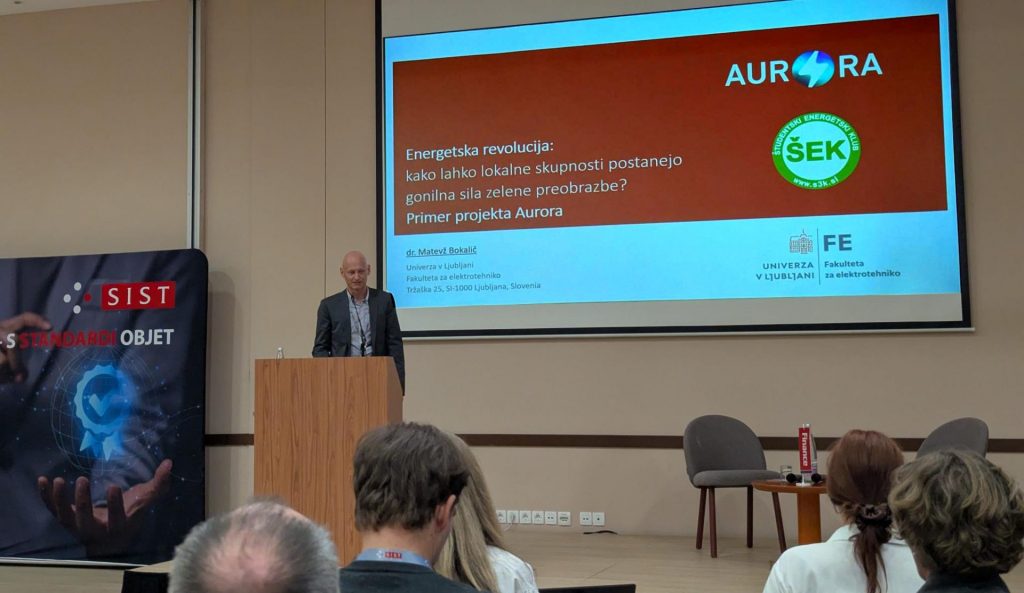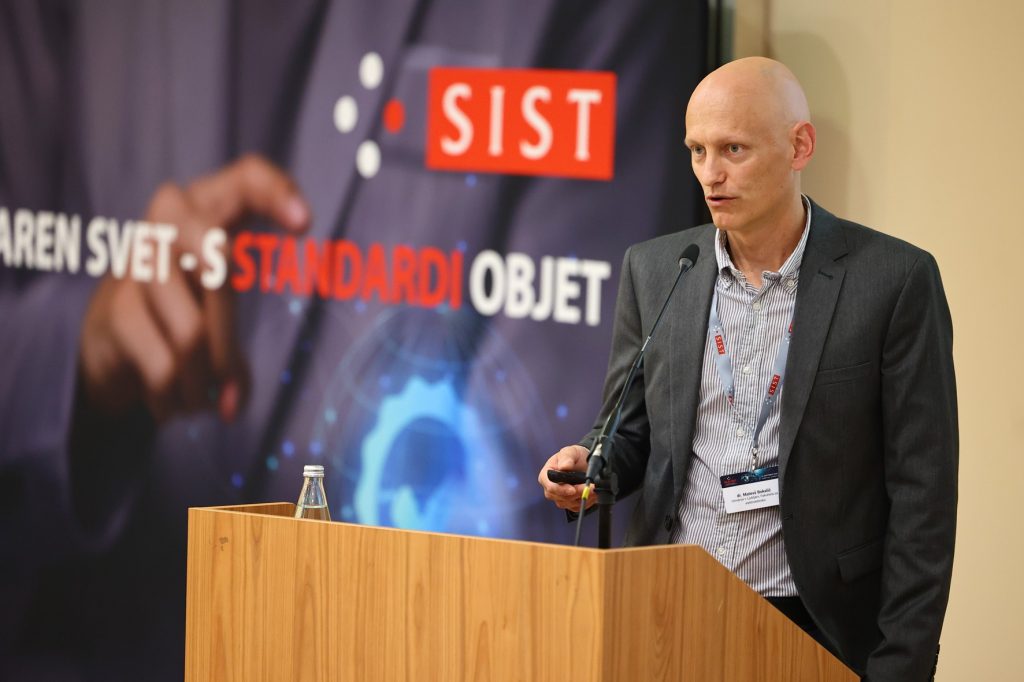After the University of Ljubljana received a special recognition for an outstanding energy-related project in the public sector for the Aurora Demonstrator at the Energy Days by journal Finance and Josef Stefan Institute, we were invited to give a talk at the Rast Conference entitled Energy revolution: How can local communities become the driving force of the green transition – the case of the Aurora project.
Dr. Matevž Bokalič gave a talk addressing the role local renewable energy communities, such as envisioned by Aurora, play in the energy revolution. He started his talk with an introduction to the energy revolution, followed by the current state of photovoltaics (PV) and electricity production around the world and in Slovenia. The status of PV plants was given, based on the shares of types of power plants, such as net-metering and self-consumption, community power plants and others (commercial, utility, …). Currently in Slovenia community power plants account for only 1% of all PV installations.
The talk continued with a presentation of the Aurora rationale, and a detailed description of three representative demonstrators from the Aurora project, namely the Aarhus, Ljubljana and Forest of Dean demonstration sites. The selected demonstration sites illustrated how different countries and societies create and encourage community power plants and why different approaches had to be developed by the Aurora project to overcome barriers that were still in place, despite EU legislation that has been enacted to create a level playing field.
Despite the many societal benefits of community PV power plants, the most important one being accessibility for everyone, they lack a local driving force. They are obviously not attractive for larger investors as there are no significant economic benefits, therefore progress with community power plants lies within the interest of enthusiastic individuals who are willing to invest significant effort without substantial economic benefits. The speed factor must also be considered because ever higher penetration rate of PV power plants is already showing negative feedback in form of negative electricity prices and grid congestion.
While there is a potential for community power plants to become the driving force of the energy revolution, the legislation must be simplified at Member State level, with simple easy processes that communities and individuals leading the establishment of communities can follow.






